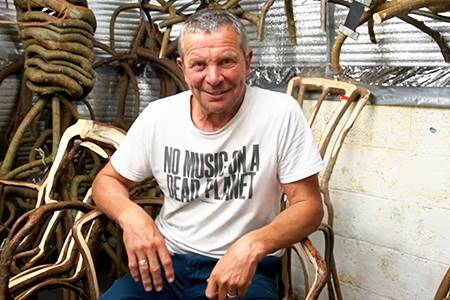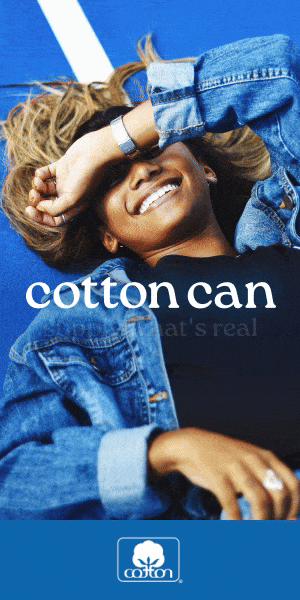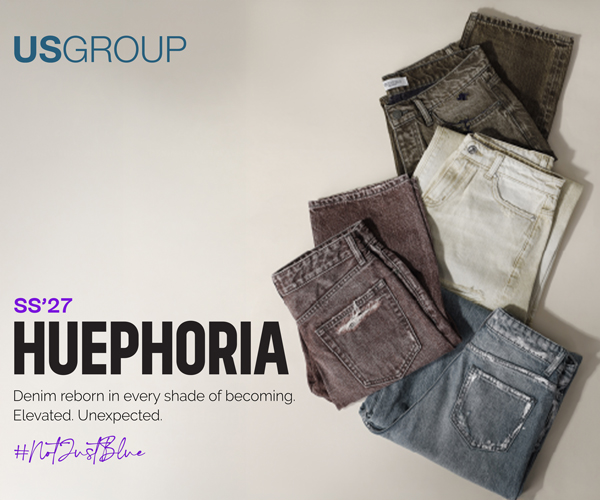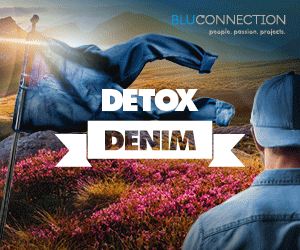Phil Wildbore: It’s amazing to have a brand that resonates with people

The founder of UK brand Flax & Loom has a long history in the denim industry, creating street brands such as Road in the 1980s. He is fed up with the amount of greenwashing, and hopes consumers soon make the connection between low price, poor quality and exploitative labour conditions.
What is it that you love about denim?
It’s what they become. Since my first sit-in-the-bath shrink-to-fit Levi’s, I still love it when you wear a pair of denims and desperately try to keep them going. My friend is great at patching them, which is like a second bespoke life.
You founded much-loved street brands including Road in the 1980s and later Monkee Genes. What are your fondest memories about working in the industry then?
Bricks and mortar retailers selling out of your products, desperate for more. When you have a line that everyone just hooks to. I was at a friend’s wedding and his wife’s mates were all in the pub the next day. One of them asked me if I was actually the guy responsible for Road. When I said yes, it was nuts, as they regaled me with their favourite ones and colours. It was amazing to be involved in their younger lives with so much affection.
What are some of the biggest issues in the clothing industry at the moment, and what can we do about them?
To hear the pretence of huge corporations suggesting they are sustainable because they use recycled thread or organic cotton in a minute part of their business. The reason their prices are so cheap is they produce vast amounts of each product moving from poor countries to poorer ones, suggesting they are bringing jobs. Sustainability is having a conscious for the future – not making garments for landfill with the cheapest workforce in the world.
Your new brand, Flax & Loom, has a focus on paying supply-chain workers fairly and boycotting greenwashing. How do you achieve your goals?
I am working directly with the factory making minimal amounts of a compact range. When we achieve strong sell-through we simply produce more, to help the retailers to maximise sales. This is not new to me, it was the same with Road when we produced in the UK. I desperately wish to make high quality pieces that last… maybe resurfacing in charity/vintage shops in 20 to 30 years’ time or being discovered by the offspring of the original buyer. Not to end up with thousands of unsold garments in either my warehouse or my customers’.
Can you tell us about any fabrics that have stood out to you recently?
For me, a fabric needs to work with the look I’m trying to achieve. You can design a fabulous product which dies because of the fabric or wash. Texture, flow and feel.
Where do you see the industry heading in the next five years?
Hopefully along the same lines. However, my goal is awareness. Sustainability must be introduced to the curriculum, or we’ll watch the human race destroy this planet by disregarding common sense. Our game is responsible for hideous amounts of landfill. Every year in this country, 300,000 tons of clothing goes into landfill. If it was just jeans/trousers, that would be 600 million; for T-shirts, dresses or skirts, that’s 2 billion pieces; so the average is 1.3 billion pieces. We only have a population of 67 million, so that’s insane! And Boohoo’s turnover is now £1.5 billion?












